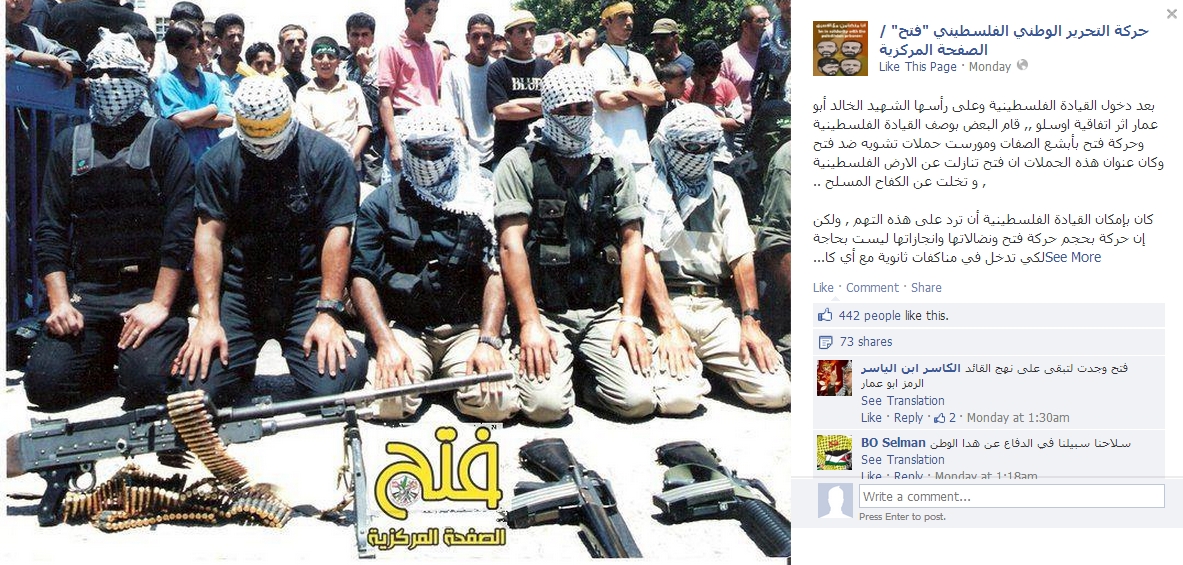Fatah declares "we did not abandon the battlefield and will never abandon it"

After the Palestinian leadership, led by eternal MartyrYasser Arafat returned [to the territories] following the Oslo Accords, there were those who described the Palestinian leadership and Fatah’s leadership in the ugliest manner. Smear campaigns were held against Fatah and their headline was that Fatah had given up Palestinian land and abandoned the armed resistance.
The Palestinian leadership could have responded to these accusations but a movement of Fatah’s size, its battles and achievements, doesn’t need to enter into these petty arguments with anyone, because Fatah has held and still holds one compass, which points towards Jerusalem.
There is no better proof of this than the confrontations the [Palestinian] security mechanisms had with the Zionist occupation forces between 1994 and 2000, foremost among them the battle of Joseph’s Tomb and the tunnel Intifada (i.e., the Western Wall tunnel riots).
Throughout its purely revolutionary and national history, Fatah has been characterized by being a flexible enough movement; occasionally it escalated the armed struggle and occasionally it escalated the political and diplomatic confrontation.
Each time, the battlefield witnessed Fatah’s greatness and the fact that it stands at the front of the Palestinian resistance. The blessed Al-Aqsa intifada (i.e. the PA terror campaign) is clear evidence that Fatah was and still is a revolutionary movement that didn’t lay down the weapon or abandon it, but knows when to use the armed way and when to use the peaceful popular way.
Fatah is a movement which was established to protect the Palestinian people’s rights. The purpose of the armed resistance is not to have flowing rivers of Palestinian bloodwithout any political achievements worth mentioning.If there is no other option but to sacrifice blood and human life, the size of the result must correspond the size of the sacrifice.
In the end, Fatah did not abandon the battlefield and will never abandon it – there’s a time for everything.
Joseph’s Tomb in Nablus in the West Bank, a Jewish holy site where some believe the biblical Joseph is buried, was in the news early in the Second Intifada when a Palestinian mob ransacked it after an Israeli troop withdrawal. These days Joseph’s Tomb is doing even worse, having been turned by the Nablus Palestinians into a garbage dump.